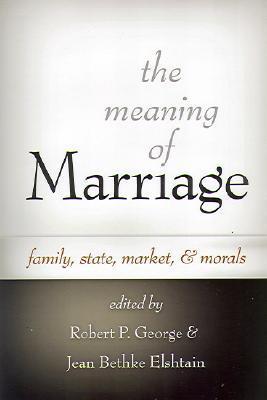Kevin DeYoung's Blog, page 139
May 27, 2012
Remembering Memorial Day
This piece has appeared on Memorial Day before, but I thought it was worth posting again.
*******
Memorial Day, originally called Decoration Day, was instituted to honor Union soldiers who died in the Civil War. After World War I, the purpose of the day was expanded to include all men and women who died in U.S. military service. Today, Memorial Day is mainly thought of as the unofficial start of summer-a long weekend with a car race, playoff basketball, and brats and burgers on the grill.
It is always tricky to know how the church should or shouldn’t celebrate patriotic holidays. Certainly, some churches blend church and state in such a way that the kingdom of God morphs into a doctrinally-thin, spiritually nebulous civil religion. But even with this dangers, there are a number of good reasons why Christians should give thanks for Memorial Day.
1. Being a soldier is not a sub-Christian activity. In Luke 3, John the Baptist warns the people to bear fruit in keeping with repentance. The crowds respond favorably to his message and ask him, “What then shall we do?” John tells the rich man to share his tunics, the tax collectors to collect only what belongs to them, and the soldiers to stop their extortion. If ever there was a time to tell the soldiers that true repentance meant resigning from the army, surely this was the time. And yet, John does not tell them that they must give up soldier-work to bear fruit, only that they need to be honest soldiers. The Centurion is even held up by Jesus as the best example of faith he’s seen in Israel (Luke 7:9). Military service, when executed with integrity and in the Spirit of God, is a suitable vocation for the people of God.
2. The life of a soldier can demonstrate the highest Christian virtues. While it’s true that our movies sometimes go too far in glamorizing war, this is only the case because there have been many heroics acts in the history of war suitable for our admiration. Soldiers in battle are called on to show courage, daring, service, shrewdness, endurance, hard work, faith, and obedience. These virtues fall into the “whatever is true, whatever is honorable, whatever is just” category that deserve our praise (Philippians 4:8).
3. Military service is one of the most common metaphors in the New Testament to describe the Christian life. We are to fight the good fight, put on the armor of God, and serve as a good soldier of Christ Jesus. When we remember the sacrifice, single-minded dedication, and discipline involved in the life of a soldier, we are calling to mind what we are supposed to be like as Christians in service to Christ.
4. Love of country can be a good thing. As Christians we have dual citizenship. Our first and ultimate allegiance must always be to Christ whose heavenly dwelling is our eternal home. But we are also citizens of an earthly country. We will stand before God not as individuals wiped clean of all earthly nationality, but as people with distinct languages, cultural affinities, and homelands. It is not wrong to love our distinct language, culture, or nationality. Whenever I’m at a ball game I still get choked up during the singing of the National Anthem. I think this is good. Love for God does not mean we love nothing else on earth, but rather that we learn to love the things on earth in the right way and with the right proportions and priorities. Love of country is a good thing, and it is right to honor those who defend the principles that make our country good.
5. This may be controversial to some, but I believe the facts of history will demonstrate that on the whole, the United States military has been a force for good in the world. Obviously, as a military power, we have blundered at times, both individually and corporately. But on the whole, the men and women of our armed services have fought and are fighting for causes that promote freedom, defend the rights of human beings, and reject tyranny. War is still hell and a tragic result of the fall. Praise God for his promise to one day end all human conflict. But in a world where people are evil by nature and leaders are not always reasonable and countries do not always have good intentions, war is sometimes the way to peace-at least the best peace we can hope for between peoples and nations this side of heaven.
So thank God for a day to remember God’s common grace to America and his special grace in enlisting us, poor weak soldiers that we are, in service to Christ our Captain and conquering King.
May 26, 2012
Parental Discipline Without Provocation
 In Ephesians 6:4, God tells fathers (though I think the application is fair for both parents) to raise children in the discipline and instruction of the Lord. He also warns against provoking our children to anger. So how do we do one without the other? How do we discipline exasperating kids without in turn exasperating them unnecessarily?
In Ephesians 6:4, God tells fathers (though I think the application is fair for both parents) to raise children in the discipline and instruction of the Lord. He also warns against provoking our children to anger. So how do we do one without the other? How do we discipline exasperating kids without in turn exasperating them unnecessarily?
Commenting on this verse, Martyn Lloyd-Jones offers seven principles to govern our disciplinary action as parents.
1. “We are incapable of exercising true discipline unless we are first able to exercise self-control, and discipline our own tempers” (Life in the Spirit, 278).
2. “If a parent is to exercise this discipline in the right way he must never be capricious. There is nothing more irritating to the one who is undergoing discipline than a feeling that the person who is administering it is capricious and uncertain. There is nothing more annoying to a child than the kind of parent whose moods and actions you can never predict, who is changeable, whose condition is always uncertain. There is no worse type of parent than he who one day, in a kindly mood, is indulgent and allows the child to do almost anything it likes, but who the next day flares up in a rage if the child does scarcely anything at all” (279).
3. “Another most important principle is that the parent must never be unreasonable or unwilling to hear the child’s case. There is nothing that so annoys the one who is being disciplined as the feeling that the whole procedure is utterly unreasonable. In other words, it is a thoroughly bad parent who will not take any circumstances into consideration at all, or who will not listen to any conceivable explanation. . . .Of course one realizes that advantage can be taken of this by the child. All I am saying is that we must never be unreasonable. Let the explanation be given by the child, and if it is not a true reason, then you can chastise for that also as well as for the particular act which constitutes the offence. But to refuse to listen, to prohibit any kind of reply, is inexcusable” (280).
4. “But there is another principle to be considered – the parent must never be selfish. . . .My charge applies to persons who do not recognize that the child has his own life and personality, and who seem to think that children are entirely for their pleasure, or for their use. They have an essentially wrong notion of parenthood and what it means. They do not realize that we are but guardians and custodians of these lives that are given to us, that we do not possess them, that they do not ‘belong’ to us, that they are not ‘goods’ or chattels, that we have no absolute right over them” (281).
5. “Punishment, discipline, must never be administered in a mechanical manner. There are people who believe in discipline for its own sake. That is not biblical teaching, but the philosophy of the Sergeant Major. . . .It must never be thought of in terms of pressing a button and expecting an inevitable result to follow. That is not true discipline; it is not even human. That belongs to the realm of mechanics. But true discipline is always based on understanding; it has something to say for itself; it has an explanation to give” (282).
6. Discipline must never be too severe. Here is perhaps the danger that confronts many good parents at the present time as they see the utter lawlessness about them, and as they rightly bemoan it and condemn it. Their danger is to be so deeply influenced by their revulsions as to go right over to this other extreme and to become much too severe. The opposite of no discipline at all is not cruelty, it is balanced discipline, it is controlled discipline” (283).
7. “We must never fail to recognize growth and development in the child. This is another alarming parental defect which, thank God, one does not see now so often as formerly. But there are still some parents who continue to regard their children all their lives as if they had never outgrown their childhood. The children may be twenty-five but they still treat them as if they were five. They do not recognize that this person, this individual, this child who God has given them in His grace, is one that is growing and developing and maturing” (284).
May 25, 2012
How to Leave Your Old Church
 Yesterday we looked at how to begin at your new church. But sometimes the harder move is leaving your old church. I don’t want to give advice on when to leave a church. Let’s assume the reasons make sense and now the question is how to leave. What should you do?
Yesterday we looked at how to begin at your new church. But sometimes the harder move is leaving your old church. I don’t want to give advice on when to leave a church. Let’s assume the reasons make sense and now the question is how to leave. What should you do?
Try to leave graciously. When someone voluntarily leaves a church (not because of a move or a graduation or a deployment) it is usually a painful experience. You’ve probably been hurt or disappointed. Maybe you dislike the new pastor or the new direction of the church. The temptation in these situations will be toward bitterness. You may want to leave with all your guns ablazin’ but the approach that feels good isn’t always the one that is good. Better to air on the side of gentleness and let the Lord repay your enemies. This also makes it easier for you to admit wrong if you should find some down the road.
Tell the pastor you are leaving. This may be the most important point. Please let someone know you are going. You may want people to notice you are gone, and a good elder board will notice, but if you’ve already decided to leave now is not the time for sour grapes. If you tell the leaders you are leaving, they can pray for you. Maybe they can clear up a misunderstanding. Or maybe they need to learn from your experience. Just don’t go silently into that good night.
Leave off a ledge. I got this imagery from a dear member who recently left our church and did so with great grace and magnanimity. He told me that as he thought about leaving he decided he didn’t want to drift away, slowly pulling away and dropping his commitments. He said he’d rather take a leap off the ledge and be fully engaged until the moment when he decided it was time to go. Be in while you are in, and then when you are out, jump right out.
Learn how to kindly and honestly answer the question “Why did you leave?” People will ask you, so figure out your answer. Don’t kill someone’s character or disembowel the whole church with your reply. Don’t lie either. A simple, straightforward answer will suffice. We didn’t agree with the direction of the church. We disagreed with some of the doctrines being taught. We didn’t feel like we could submit ourselves to the authority of the church any longer. Tell the truth, but speak it in the manner you would want the church to speak about you.
Develop a plan right away for how you will look for a new church. It may take you some time to settle in a new place, but start working on your plan right away. Will you visit these ten churches? Or two churches? Will you visit them once or three times? What is important to you (and your family, and God!) in finding a church? Don’t allow yourself to float aimlessly for months and years. Too many church floaters just float away.
Don’t burn bridges. If you were a faithful member of your previous church, you will keep running into those who are still there. You’ll see them at weddings, funerals, open houses, and school functions. Maybe even family reunions! It’s bound to be a little awkward but do what you can to keep the relationships intact. Many of them are worth saving. And you may need them later.
Keep praying and ask others to pray for you. The ties that bind are not broken easily. In some ways they don’t have to. Obviously, the relationship changes when you leave a church, but you should still want what is best for all those you left behind. And hopefully they still care for you. It never hurts to have more prayer.
May 24, 2012
How to Start at Your New Church
 Over ten years in pastoral ministry I’ve seen many new people come to church and I’ve seen a few long-time members leave our church. Some make these moves better than others. While there are many things I have learned about what pastors and current members should do in these situations, I’ll save those ruminations for another time. Instead, I want to reflect on what new people can do right in coming to a church and what is helpful from those who decide they must leave the church.
Over ten years in pastoral ministry I’ve seen many new people come to church and I’ve seen a few long-time members leave our church. Some make these moves better than others. While there are many things I have learned about what pastors and current members should do in these situations, I’ll save those ruminations for another time. Instead, I want to reflect on what new people can do right in coming to a church and what is helpful from those who decide they must leave the church.
We’ll look at the coming today and the leaving tomorrow.
So what should I do when I start attending a new church?
Make a decision to decide and then stick with it. Pastors understand that choosing a church is a big deal. We realize that you may check out different churches for several months. It’s okay to tell us that. We won’t (or shouldn’t be) offended. But make up your mind to make up your mind. And when you do, throw yourself in to your new home.
Introduce yourself. Yes, the church should make an effort to get to know you. But if you really want to make friends also make an effort to get to know people at the church. Wear a name tag if your church has them. Remind people of your name, even past the point when you think surely they must remember you. Make a point to talk to the pastor in the greeting line and make yourself known. Some pastors are great at meeting people. But others are introverted, bad with names, or just very busy.
Start coming to church functions like you’ve been there forever. In my experience new folks that go to the evening service, the potluck, the congregational meeting, the Christmas program, and join a small group, almost always feel like the church is incredibly welcoming. Those who only come on Sunday mornings, and maybe only 2-3 times a month, struggle to find their way.
Do ask about important doctrines, but do not press for massive changes. I have no problem with newcomers asking me where our church stands on gender roles or homosexuality or justification. It can be a very good sign when someone takes doctrine this seriously. But if you have been at the church for a month and already want to inquire about a new worship style, a new approach to children’s ministry, or a new stance on spiritual gifts, then you either need to keep a number of things to yourself for awhile (or forever!) or check out a different church.
Take the membership class. Even if you don’t join right away, you’ll be glad you got to know more about the church and meet other new people.
Try not to be offended if you don’t get asked to do something right away. I’m not letting pastors and church members off the hook. We need to seek out the new person. The welcoming process is most incumbent upon the incumbents. But be patient if we don’t single you out for involvement in a special role. I know it feels good to be asked, but it is okay to volunteer too.
Don’t worry about saying no if you do get asked to do something right away. If you need a break after a hard church experience or if you just aren’t ready for the task, it’s okay to tell your new church “not right now.” No hard feelings. We’ll ask again!
May 23, 2012
Book Briefs: May 2012
[image error]Daniel R. Hyde, Jesus Loves the Little Children: Why We Baptize Children (Reformed Fellowship, 2012). This is an intelligent, gracious, and careful explanation for why Christians ought to have their children baptized. Whether you are convinced of infant baptism, unconvinced, or somewhere in between, this readable volume will help you understand the rationale for applying the sign of the covenant to our covenant children. This is a warm-hearted introduction to the Reformed understanding of baptism. I will recommend it gladly and often.
 Understanding Scripture, Edited by Wayne Grudem, C. John Collins, and Thomas R. Schreiner (Crossway, 2012). A nice volume with essays on hemeneutics, canon, archaeology, and textual criticism. There are also several chapters on reading the Bible (theologically, as literature, in prayer, for personal application, for preaching) and how the Old Testament relates to the New. Contributors include Packer, Piper, Powlison, Poythress, and a number of other excellent scholars/writers whose names don’t start with P. This book is a good fit for lay people and pastors looking for short introductions to the major topics surrounding the doctrine of Scripture.
Understanding Scripture, Edited by Wayne Grudem, C. John Collins, and Thomas R. Schreiner (Crossway, 2012). A nice volume with essays on hemeneutics, canon, archaeology, and textual criticism. There are also several chapters on reading the Bible (theologically, as literature, in prayer, for personal application, for preaching) and how the Old Testament relates to the New. Contributors include Packer, Piper, Powlison, Poythress, and a number of other excellent scholars/writers whose names don’t start with P. This book is a good fit for lay people and pastors looking for short introductions to the major topics surrounding the doctrine of Scripture.
 Michael J. Kruger, Canon Revisited: Establishing the Origins and Authority of the New Testament Books (Crossway, 2012). This is a serious book of theology, philosophy, and history. It’s one of those books where some pages have more lines in the footnote than lines in the text. Kruger makes a rigorous argument for a “self-authenticating” canon, as opposed to one that is “historically determined” or “community determined.” In the second half of the book, Kruger addresses three main “defeaters” to his self-authenticating model: questioning the divine qualities of the canon, questioning the apostolic origins of the canon, and questioning the corporate reception of the canon. All in all, this is a terrific academic resource. I just gave a Sunday evening sermon/lecture on the canon and used this book extensively.
Michael J. Kruger, Canon Revisited: Establishing the Origins and Authority of the New Testament Books (Crossway, 2012). This is a serious book of theology, philosophy, and history. It’s one of those books where some pages have more lines in the footnote than lines in the text. Kruger makes a rigorous argument for a “self-authenticating” canon, as opposed to one that is “historically determined” or “community determined.” In the second half of the book, Kruger addresses three main “defeaters” to his self-authenticating model: questioning the divine qualities of the canon, questioning the apostolic origins of the canon, and questioning the corporate reception of the canon. All in all, this is a terrific academic resource. I just gave a Sunday evening sermon/lecture on the canon and used this book extensively.
 J.I. Packer, Fundamentalism and the Word of God (Eerdmans, 1958). I had never read this classic before and even though the context for the book is dated, the content definitely is not. You could easily still give this book to a student or skeptic and say, “This is what I believe about the Bible and what Christians ought to believe.” This is a vigorous, quotable, intelligent defense of an evangelical doctrine of Scripture. It was much needed then and is much needed now.
J.I. Packer, Fundamentalism and the Word of God (Eerdmans, 1958). I had never read this classic before and even though the context for the book is dated, the content definitely is not. You could easily still give this book to a student or skeptic and say, “This is what I believe about the Bible and what Christians ought to believe.” This is a vigorous, quotable, intelligent defense of an evangelical doctrine of Scripture. It was much needed then and is much needed now.
 Douglas Wilson, Evangellyfish: A Novel (Canon Press, 2012). What can you say about Doug Wilson? The guy can flat out write. And if LOL wasn’t so cliche, I’d also say he’s laugh out loud funny. This book is a satire about Chad Lester, the sex-crazed pastor of a shallow (and also sex-crazed) megachurch called Camel Creek Community Church. The “hero” of the story is a stodgy Reformed Baptist minister John Mitchell whose life gets connected with Chad’s in increasingly complicated ways. Wilson tells a good story that draws you in and keeps you pressing forward to see what happens next. For my tastes, I thought the story was too thoroughly about sex. No lurid descriptions were given, but I’d still rather not read a whole book about the creative permutations of sexual deviancy, even if it is farcical. That complaint notwithstanding, I have to say, after finishing the book, I was surprised to find myself thinking, “You know what, that was really funny, but also strangely and realistically redemptive.” I give Wilson credit for doing what almost no other Christian dares to do, and almost no one does well, and that’s employ the genre of satire for the glory of God.
Douglas Wilson, Evangellyfish: A Novel (Canon Press, 2012). What can you say about Doug Wilson? The guy can flat out write. And if LOL wasn’t so cliche, I’d also say he’s laugh out loud funny. This book is a satire about Chad Lester, the sex-crazed pastor of a shallow (and also sex-crazed) megachurch called Camel Creek Community Church. The “hero” of the story is a stodgy Reformed Baptist minister John Mitchell whose life gets connected with Chad’s in increasingly complicated ways. Wilson tells a good story that draws you in and keeps you pressing forward to see what happens next. For my tastes, I thought the story was too thoroughly about sex. No lurid descriptions were given, but I’d still rather not read a whole book about the creative permutations of sexual deviancy, even if it is farcical. That complaint notwithstanding, I have to say, after finishing the book, I was surprised to find myself thinking, “You know what, that was really funny, but also strangely and realistically redemptive.” I give Wilson credit for doing what almost no other Christian dares to do, and almost no one does well, and that’s employ the genre of satire for the glory of God.
 The Meaning of Marriage: Family, State, Market & Morals, edited by Robert P. George and Jean Bethke Elshtain (Spence Publishing, 2006). With the events of the past couple weeks, I pulled this off the shelf to reread and read more carefully. Anyone looking for a careful, scholarly defense of traditional marriage-from several different angles-will be helped by this excellent collection of essay. Particularly good were the chapters by Don Browning and Elizabeth Marquardt, Seana Surgue, and Maggie Gallagher on (respectively) “Liberal Cautions on Same-Sex Marriage,” “Soft Despotism and Same Sex Marriage,” and “(How) Does Marriage Protect Child Well-Being?” In addition to understanding biblical teaching, evangelicals would do well to think more carefully about the legal, political, historical, and sociological realities that support, and commend, a traditional understanding of marriage.
The Meaning of Marriage: Family, State, Market & Morals, edited by Robert P. George and Jean Bethke Elshtain (Spence Publishing, 2006). With the events of the past couple weeks, I pulled this off the shelf to reread and read more carefully. Anyone looking for a careful, scholarly defense of traditional marriage-from several different angles-will be helped by this excellent collection of essay. Particularly good were the chapters by Don Browning and Elizabeth Marquardt, Seana Surgue, and Maggie Gallagher on (respectively) “Liberal Cautions on Same-Sex Marriage,” “Soft Despotism and Same Sex Marriage,” and “(How) Does Marriage Protect Child Well-Being?” In addition to understanding biblical teaching, evangelicals would do well to think more carefully about the legal, political, historical, and sociological realities that support, and commend, a traditional understanding of marriage.
May 22, 2012
What a Comedian Taught Me About Parenting
 Recently I learned something about parenting from a stand-up comedian. I was listening to this bit about children from Brian Regan and around the 1:35 mark he tells the story about his son flinging around half-eaten spaghetti from his mouth and watching the sauce splatter across the room. Regan explained that he made a mistake as a parent because he stopped him: “Hey man, knock that off. Can’t you see the paint on the walls is more important than the joy in your heart?!” At that last line the audience burst into loud laughter and applause.
Recently I learned something about parenting from a stand-up comedian. I was listening to this bit about children from Brian Regan and around the 1:35 mark he tells the story about his son flinging around half-eaten spaghetti from his mouth and watching the sauce splatter across the room. Regan explained that he made a mistake as a parent because he stopped him: “Hey man, knock that off. Can’t you see the paint on the walls is more important than the joy in your heart?!” At that last line the audience burst into loud laughter and applause.
I know, I know, it’s a stand-up routine and a not a sermon. Let’s not take it too seriously. But the audience resonated with the line–and so do many of us I imagine–because there is something uncomfortably and refreshingly insightful about the joke. Why would spinning around with spaghetti always be the wrong thing for a child to do? Obviously, probably not a good idea as a guest. And not a good habit to develop as a general rule. But isn’t the best response to such antics–on some days, in some situations, with some people–simply to laugh? Even better, think of the fun you might have if you slurped up your own spaghetti, started bobbin your noggin, and joined Junior in the act. Being a parent means being responsible, but does it have to mean always being the heavy?
I think I’m a pretty fun dad. I like to get on the floor and get tangled up with my kids. I like to be goofy. I like to laugh and make them laugh. But I also know that one of my besetting sins is impatience with my children. I discipline them in anger (Eph. 4:26) and provoke them to anger (Eph. 6:4). I’m well aware of all the dangers on the “too soft side” of the parenting equation: no boundaries, no discipline, unruly and disrespectful kids. I just want us to remember the dangers on the other side too. Like never learning there’s a difference between acting like a defiant rebel and acting like a kid. Why is that when my kid turns over the picnic table, places a large plastic car on top of it, inserts several brooms and starts riding the thing like a spaceship my first reaction is to tell him to cut it out and play normal? I actually know why that’s my reaction. It’s because I don’t want to pick up the mess. So maybe I should teach my son to pick up after himself. Or maybe I help him put things back together before bedtime. But what’s with the internal desire to make sure our kids have fun only by means of an approved list of “normal” activities?
Some parents are permissive and lazy. Others are over-bearing kill-joys. Sadly, many of us manage to be both. I say: keep them safe, keep them away from sin, give them the gospel, and let the good times roll. Hey, I wouldn’t mind being five again. So why make the five year-old miserable because she likes being five too. Kids are kids. And we’d be better and happier parents with better and happier kids if we allowed that sometimes the joy in their silly, childlike hearts is worth more than the paint on our precious parent-like walls.
May 21, 2012
Monday Morning Humor
May 19, 2012
Weekend Round-Up
A few links that may be of interest:
1. Our church will be relocating later this year. This is a tremendous answer to prayer and the culmination of years of effort. We are purchasing an existing church building that is currently owned by East Lansing Public Schools. The building is a mile up the road. The MSU Community School of Music, which currently leases more than half the space in the facility we are purchasing, will be moving into our building. The school district will find a place to relocate by next summer. It has been good to work with East Lansing and MSU on this move. The outcome should be good for all three of us. And we’ll be able to double our facilities and triple our parking without going into debt. God is good.
2. Should Elders Ever Walk Away? The folks at 9Marks respond:
In my own experience, there have been times when, in the course of a counseling relationship, it has become increasingly clear to me that I was interacting with—I hate to say it—a fool. Yes, yes, I can be foolish, too! In all seriousness, ask my wife. But that’s just the point: God has given her to me, in part, to help me learn how to recognize my folly, so that I can repent and be wise. I pray that I would have ears to hear. A fool, according to Proverbs, is unwilling to recognize his or her folly. Or, even if he or she verbally acknowledges it, he/she is unwilling to change: “A rebuke impresses a man of discernment more than a hundred lashes a fool” (Prov. 17:10). It would be worthwhile to read through Proverbs and come up with “a pastor’s guide for how to spot a fool.” But let me sum up some of what I’ve seen in my own words.
3. Come Help Build the Church on the Arabian Peninsula. John Folmar is a superb pastor and his congregation in Dubai is wonderful. I saw both firsthand. Read this brief article about the opportunities for the gospel in the Gulf.
4. Manny Pacquiao comes out against gay marriage and steps into controversy. The world famous boxer and beloved Filipino is a Christian and believes in biblical marriage. Damian Goddard writes about Pacquiao’s controversial (and seemingly misconstrued) remarks. Goddard is a Canadian sportscaster who was fired from his job a year ago for tweeting something in opposition to same-sex marriage.
May 18, 2012
Reminder About URC Employment Opportunity
We are looking for a Director of Operations. The deadline to apply is Monday. If you or someone you know is interested in applying you can get more information here.




